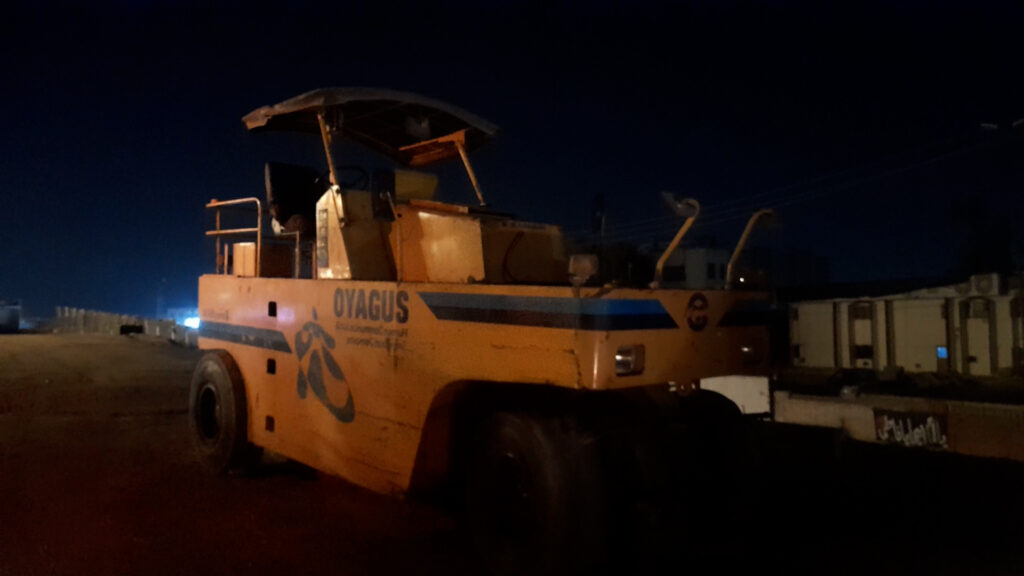US to bolster control of Syrian oil fields

WASHINGTON DC (Kurdistan 24) – Last Wednesday, US President Donald Trump announced that the US would retain a military presence in eastern Syria to prevent the Islamic State from regaining control over the oil fields. On Saturday, a US military convoy was seen traveling west on the M-4 highway toward Qamishli and then turning south.
Read More: Trump: US to keep some troops in northeast Syria; maintain ties with SDF; lift sanctions on Turkey
Locals interpreted the convoy’s movement as part of the new US deployment and suggested it was headed for the oil fields of Deir al-Zor. However, Fox News’ Lucas Tomlinson was told by a Pentagon official that it was a “standard resupply convoy,” which had come from Iraq.
“No tanks or Bradleys,” the official noted.
Along with its partners in the Syrian Democratic Forces, the US now holds the Syrian oil fields. But as it withdraws from other areas of northeast Syria, it will bolster its presence in the oil fields to include armored vehicles: Abrams tanks and Bradley fighting vehicles.
Media reports suggest that some 500 US troops – roughly half the current deployment – will be involved in controlling the Syrian oil fields.
Established military doctrine dictates having a measure of extra forces beyond what you absolutely need to have a reserve for unexpected contingencies.
The Washington Post cited Nicholas Heras, a Fellow at the Center for a New American Security, describing the difficulties that may ensue for US forces in the stripped-down deployment around the oil fields.
Currently, one major route for the resupply of US forces in Syria passes through a crossing on the Iraqi border: Fishkhabour on the Iraqi side, Semalka on the Syrian side.
Not so long ago, it was a secure border crossing for US forces, because Kurds controlled it on both sides.
The first challenge to the security of that route came in October 2017, when Baghdad attacked the Kurds, following the Kurdistan Region’s independence referendum.
In the name of preserving the unity of Iraq, the US turned a blind eye to Baghdad’s assault, despite Iran’s prominent role in orchestrating it. In the aftermath, the Kurdistan Regional Government was obliged to cede control of its border crossings, including Fishkhabour, to Iraq’s federal government.
US forces now need Baghdad’s permission to use Fishkhabour.
Moreover, following last week’s agreement between Russia and Turkey, the crossing on the Syrian side falls under their control.
Read More: Turkey, Russia reach accord on north Syria—and Trump applauds
For now, the Post reports, the US has been able to move supplies through the Fishkhabour—Semalka crossing, but how long will that last?
Russia has, not surprisingly, denounced the new US plan to keep control over the oil fields as “international state banditry.”
The revised policy represents the second time that Trump has reversed, in part, a decision to withdraw US troops from Syria. Among Trump’s campaign promises was a pledge to end America’s “endless” post-9/11 wars. Hence, his push to leave Syria.
However, each time he has tried to do so, he has met with strong opposition, including from senior US military figures who, although retired, reflect the views of their colleagues still in uniform.
Most recently, Gen. John Kelly, who also served as Trump’s Chief of Staff from July 2017 to January 2019, characterized, on Saturday, Trump’s decision to withdraw from Syria as a “catastrophically bad idea.”
“What was working in Syria was that for very little investment, the Kurds were doing all the fighting, the vast majority of the dying, and we were providing intelligence and fire support assistance,” Kelly said. “And we were winning.”
According to the Post, the Pentagon was “unhappy” with Trump’s “initial decision” to withdraw all US forces. However, Trump did find one argument persuasive: it is necessary to keep Syria’s oil out of the hands of the Islamic State.
That decision has broader implications. The US will continue to control air space, and counterterrorism operations will also continue, the Post reported. It also suggested that the Pentagon had seized on Trump’s willingness to secure the oil fields as a way to accomplish, at least in part, a mission that it believed should be continued for other reasons.
Editing by Karzan Sulaivany

